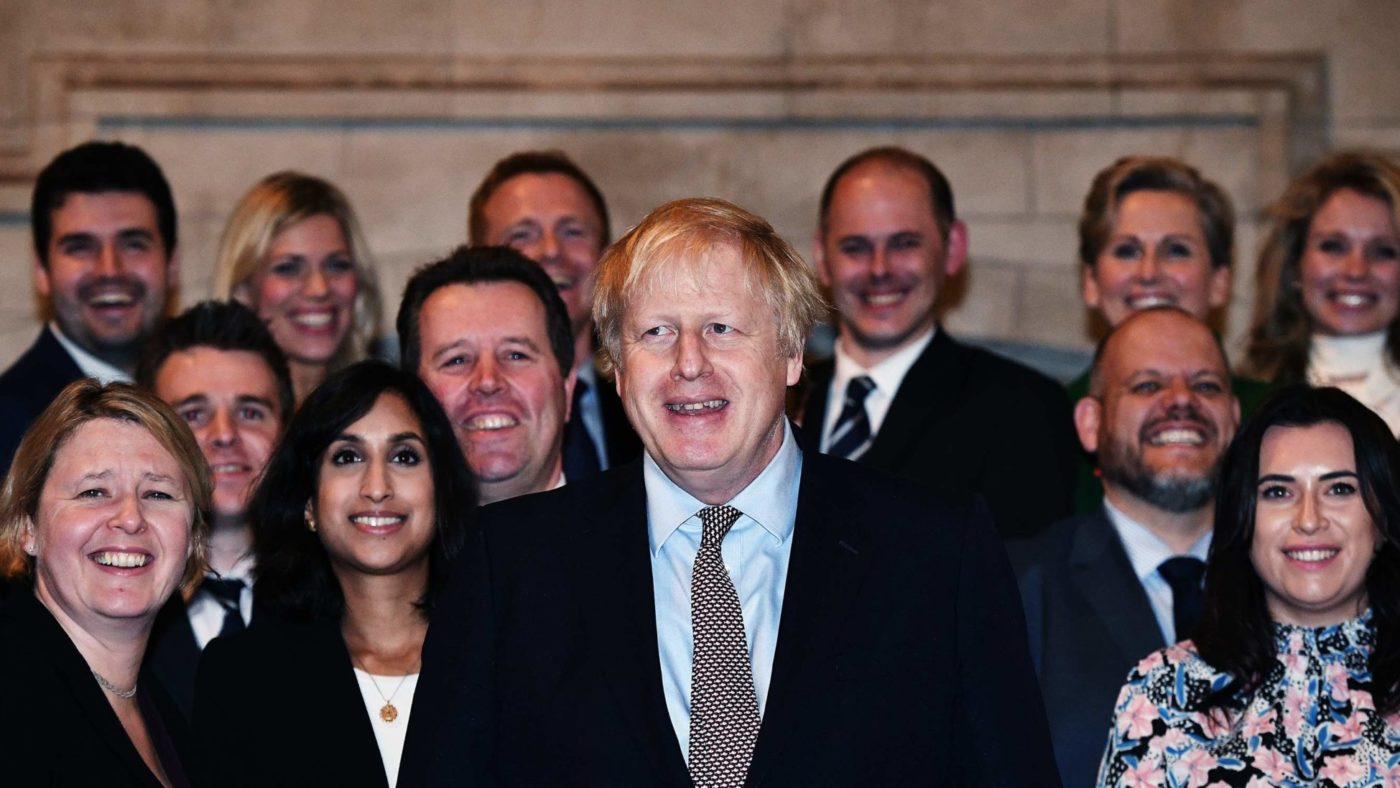Boris Johnson continues to be extraordinarily lucky in his opponents. Just when they might have capitalised on the furore over Andrew Sabisky, Labour’s leadership contenders – who until now have presided over a basically functional contest – have decided to shift the spotlight onto trans rights and the monarchy.
Whatever your thoughts on either topic, in the immediate term an Opposition fighting with itself over such issues is a gift to the Prime Minister.
The question is how many more such gifts he can reasonably expect. At some point, Labour will get their act together. As I have pointed out previously, a Prime Minister is never more powerful than in the initial aftermath of an election win. Yet more than two months into the new Parliament and this Government feels very much like its just spinning its wheels, generating much sound and fury but going nowhere very fast.
Such stalling is potentially quite dangerous, and not just because of the time it gives Labour to recover. It also risks giving the Conservative Party both space and cause to start fighting amongst itself.
Within very recent memory the Tories were so riven that there was talk of a permanent split. The departure of some of the hardest-line Remainers from Parliament definitely helped take the edge off this sense, but real divisions still remain. In fact, they’re on clear display in the pages of Johnson’s old haunt, the Daily Telegraph: just contrast Nick Timothy’s column urging the him to lead the Party beyond its “free-market comfort zone” to the paper’s furious editorial inveighing against mooted tax rises.
The challenge facing the Prime Minister is to find a way not just to mitigate these divisions, but to bring together the different strands of Conservative thinking to weave a winning formula for the 2020s. Election victories alone are not enough – whilst those strands do tend to get dragged into the slipstream of a conquering leader, such a semblance of order lasts only so long as does the leader’s momentum. It does not long endure stalling or setbacks.
Yet to date Johnson’s style does not seem to lend itself to the task. His focus on culling the “tall poppies” in the reshuffle might have left him with a Cabinet prepared to engage in a call-and-response routine, but it will have narrowed the space for independently-minded and intellectually confident figures from other wings of the party.
Contrast this with Margaret Thatcher, who did eventually expel the Wets from her Cabinet but exhibited no qualms about finding space for able ‘big beasts’ such as Ken Clarke and Michael Heseltine, even when their values differed quite markedly from hers.
There is some irony in the apparent fact that Lady Thatcher, that most ideological Prime Minister, appears to have been more willing to draw on the broad range of her Party’s talents than her most un-ideological successor. But the two points may be related. Strong ideological foundations and a factional base gave Thatcher the security to reach out, and metrics beyond mere loyalty by which to assess ministers.
Johnson, on the other hand, as yet shows little sign of a coherent governing philosophy and appears to prize personal loyalty above all else. Such an attitude will naturally favour those MPs most prepared to trim their sails to the whims of the Prime Minister rather than those who navigate by other stars, whether those constellations be plotted by the Institute of Economic Affairs or Onward.
But the fact that he lacks Thatcher’s ideological infrastructure means that Johnson actually needs both of those groups, and others, more than she did.
Not only does he need them to generate policy ideas, but he needs MPs, academics, and commentators associated with different sections of Tory thinking to act as message carriers to different parts of the tribe. He will find it much easier to shift the Conservatives towards a policy platform geared towards its new voters, for example, if he has at least some of the Thatcherites on board, devising a balancing offer to the millions of traditional Conservative voters who still back the Government and offering reassurances to restive MPs.
By contrast, Johnson might find his life much harder than it needs to be if Downing Street keeps firing off controversial proposals seemingly at random, riling up each section and putting them on guard without winning them over. Wisdom suggests to speak softly and carry a big stick, but certain sources in Number Ten appear keen on mouthing off whilst armed, it is increasingly apparent, with very little.
If the Prime Minister steps up with a plan, or even the framework of one, he may yet be able to drawn the various sections of the Tory family together in the task of influencing and implementing it, chivvied along by the powerful momentum generated by the first serious Commons majority since 2005.
But if he stalls, and leaves a vacuum at the intellectual and ideological centre of his Government, then they will inevitably fight to fill it.
Click here to subscribe to our daily briefing – the best pieces from CapX and across the web.
CapX depends on the generosity of its readers. If you value what we do, please consider making a donation.


